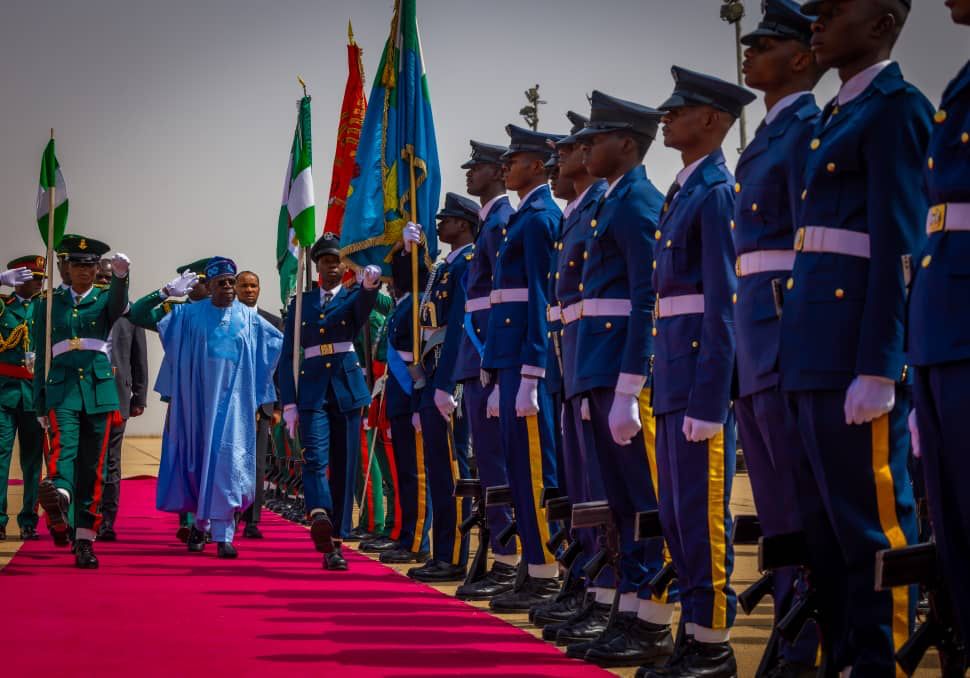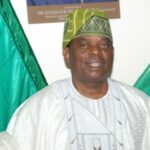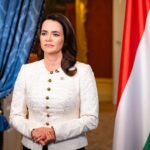
He also warned against practices that undermine national interest, assuring servicemen and women of his administration’s commitment to their wellbeing.
“Let me reiterate the urgency to upscale the fight against insecurity, which has robbed us of peace and progress,” Tinubu said at an event marking the Diamond Jubilee of the Nigerian Defence Academy in Afaka, Kaduna State, on Saturday.
His comments followed heightened cases of terrorist attacks and kidnapping-for-ransom in various parts of the country, especially the Federal Capital Territory, Abuja, which has been a hotbed of kidnapping lately.
Nonetheless, Tinubu asserted that the “relative peace” the military has secured across the major flash points is “worth celebrating,” urging them to “remember that the war is not yet over until every parcel of land held by the enemy is flying the flag of the Federal Republic of Nigeria.”
“I urge you to continue to play your constitutional role of safeguarding the territorial integrity of Nigeria, our fatherland.
“You must shun any acts that are inimical to the wellbeing of our nation and acts which can destroy the gains of democracy which we have enjoyed in the last 20 years,” a statement signed by the President’s Special Adviser on Media and Publicity, Ajuri Ngelale, quoted him saying on Saturday.
Ngelale’s statement is titled, ‘President Tinubu to the Armed Forces: we celebrate your sacrifices; continue to protect Nigeria’s territorial integrity.’
Tinubu affirmed that his government is “fully aware of the service and sacrifices that members of the Nigerian Armed Forces have continued to render” across the country, especially in the face of daunting challenges.
“We, as a government, will continue to accord priority to the needs of the armed forces to enable the military to play its constitutional role without let or hindrance,” he promised.
Turning his attention to the 60-year institution, Tinubu boasted of what he called a “robust curriculum” approved by the National Universities Commission “to enable the cadets to acquire the knowledge, skills, values, character and discipline required for effective and efficient service in the Nigerian Armed forces in peace times and in times of crises.”
He named other giants’ strides recorded in the NDA, including establishing post-graduate programmes, research centres and centres of excellence to facilitate research and enable cross-fertilisation of ideas.
The President attributed the NDA’s consistent academic calendar to its detachment from the murky waters of periodic industrial disputes and strikes.
He argued that such an advantage should make its postgraduate school an institution of first choice for Nigerian students and scholars across the globe.
“I, therefore, charge the academic staff, both military and non-military, to transform the NDA into ‘Nigeria’s Silicon Valley,’ a hub for startups where ideas are not only incubated but also actualised,” the President declared.
Tinubu commended the past and present leadership of the Academy for its quality of military and academic training, adding that such activity should end all acts of banditry, insurgency and criminality ravaging the nation.
The NDA was established on February 5, 1964. Since then, it has undergone various stages of transformation in its quest to train officers for the Nigerian Armed Forces.
Before obtaining independence from Britain, Nigeria’s first set of officers were trained in Ghana and subsequently at the Royal Military Academy in Sandhurst, England.
In January 1964, however, the first batch of 64 army and navy cadets commenced training at the Academy.
It has since been upgraded from a non-degree awarding institution to a full-fledged degree-awarding university in 1985, thereby phasing out the Nigerian Defence Academy Certificate of Education hitherto awarded to cadets.





